Protein design: from fundamental understanding, through entirely de novo structure and assemblies, to real-life applications.
Research
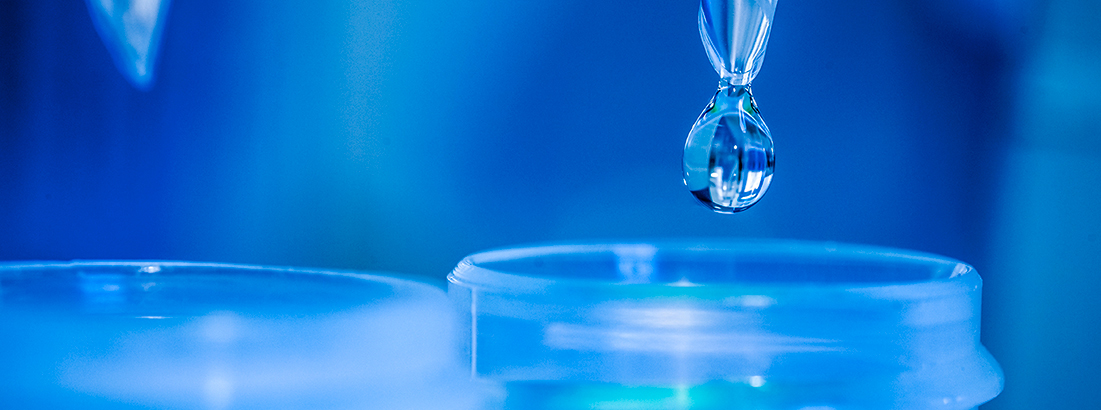
CPD research will be broadly organised into
three themes
- Programmable De Novo Protein Design, aimed at improving methods for protein design by combining rational, physics-based and AI-based approaches
- Contextualised Protein Design, that is, designing proteins that are fit for purpose such as working directly and optimally in cells, chemical reactors, etc
- Biodesign for Sustainability and Healthcare, for instance working with biotech and industry to deliver synthetic proteins to address real-world challenges and needs.
More specifically, some of the CPD’s cross-disciplinary research programmes will include: the de novo design of cell-penetrating peptides and proteins to target subcellular processes; the de novo design of protein-based conformational switches, and dynamic energy-transducing systems; and the design of de novo enzymes to catalyse reactions not performed by natural enzymes.
Contact
Researchers
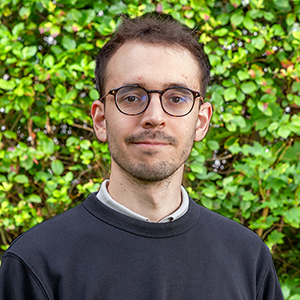
Luis Gutierrez-Rus, Woolfson Group
Luis graduated with a BSc in Biochemistry and a MSc in Biotechnology from the University of Granada, Spain, and received a PhD in Chemistry at the same university under the supervision of Prof. Jose Manuel Sanchez-Ruiz.
For his PhD, he studied the use of resurrected ancestral proteins as scaffolds for enzyme engineering and evolution, as well as to understand the evolutionary origins of enzymatic catalysis.
In the Woolfson lab, he combines protein design, evolution, and engineering to generate de novo catalytic machineries and design novel dynamic protein scaffolds.
Bram Mylemans, Woolfson Group
Bram received MSc and PhD degrees in biochemistry and biotechnology from the KU Leuven, Belgium under the supervision of Arnout Voet.
There, he worked on the design and characterisation of β-propeller proteins. During his time in the Woolfsonlab in Bristol, he has designed coiled-coil based binders for cancer targets. In collaboration with Andrew Wilson at the University of Birmingham and Laura Itzhaki at the University of Cambridge, he has developed de novo proteins as scaffolds for targeted protein degradation.
For the new lab in Copenhagen, he is continuing his work on protein binders as well as rekindling his interests in β-sheet design.
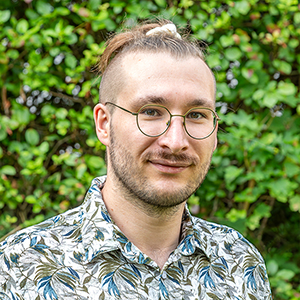
Maxime Naudé, Woolfson Group
Maxime received an MSc in materials chemistry at Montpellier University and a PhD in chemistry from Strasbourg University under the supervision of Pr. Peter Faller and Dr. Vincent Lebrun.
His focus was the design and characterisation of de novo peptides that fold into left-handed β helices (LβHs) to further design artificial metalloenzymes. He joined the Woolfson group in Bristol to work on molecular photonic breadboards, specifically on surface functionalization with α-helical barrels that bind small-molecule fluorophores in collaboration with Sheffield University.
He joined the Center for Protein Design (CPD) to work on self-assembling protein designs.
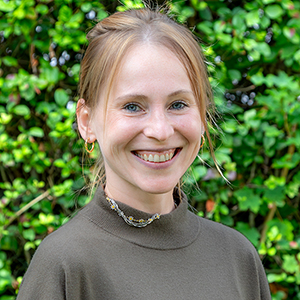
Katarzyna Ożga, Woolfson Group
Kasia received her PhD in chemistry from Wroclaw University of Science and Technology under the supervision of Professor Lukasz Berlicki.
The title of her thesis was peptide foldmers with aldolase-like activity. After that, she stayed for few more years in Prof. Berlicki’s group working on the design of new peptide foldamer based tertiary structures and utilizing them as scaffolds to build protein-protein interaction inhibitors (PPIs).
In the Woolfson lab, she is developing helical barrels with catalytic activity.
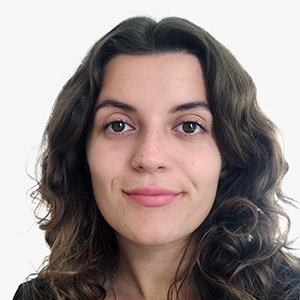
Maya Zagouri, Woolfson Group
Maya received her BSc and MSc in Biotechnology Engineering from the Technical University of Denmark. She carried out her master’s thesis in the Bioengineering group at DTU titled “Design and Validation of De Novo High Affinity Binding Proteins Targeting Fibroblast Growth Factor Receptor Isoforms.”
Her work focused on combining AI-guided protein design with experimental validation to explore binding and isoform specificity in designed minibinders for cancer therapeutics. In addition to her thesis, she has worked on designing binding proteins for pathogenic bacteria found in the vaginal microbiome.
At the Center for Protein Design, she continues to work with computational and experimental protein design focusing on the generation of de novo enzymes.
PhD student
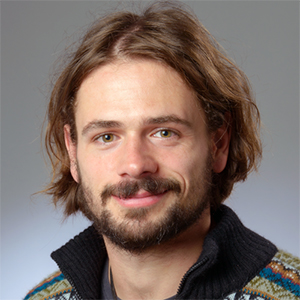
Tobias Dorer, PhD student
Tobias graduated with a BSc in Chemistry from Heidelberg University, Germany, and a MSc in Biophysics/Synthetic Biology from the University of Goettingen, Germany, and the Max-Planck School Matter to Lilfe. For his Master thesis he traveled to the lab of Tanja Kortemme at UCSF, where he investigated possibilities to improve the design and prediction of multistate proteins.
In the Center for Protein Design in Copenhagen, he aims to improve de novo design of enzymes by the integration of multistate design principles.
